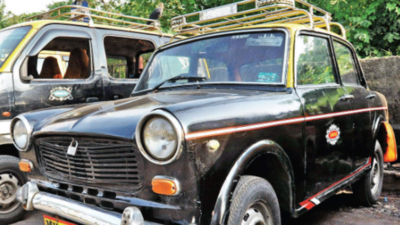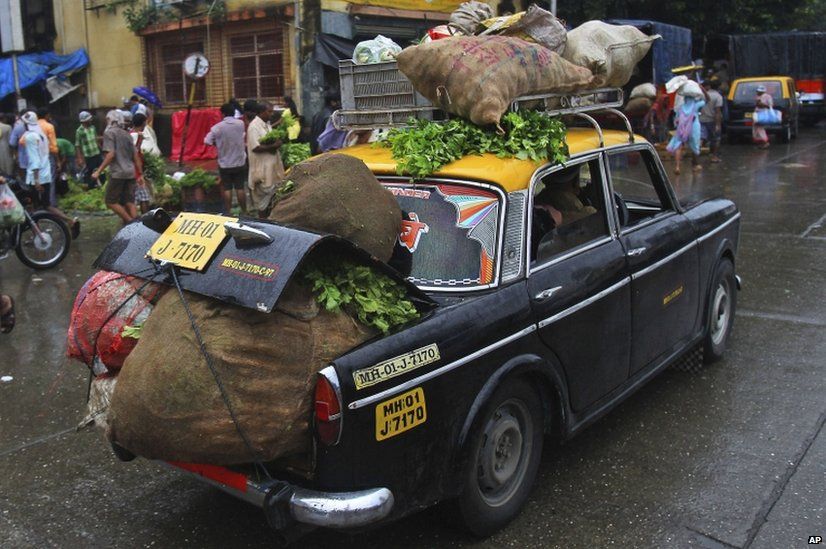Mumbai’s legendary ‘Premier Padmini’ taxis, affectionately known as the ‘Kaali Peeli’ taxis, have taken their final journey as they were officially retired from the city’s roads on October 30. This decision to retire the Premier Padmini taxis comes after the iconic diesel-powered double-decker buses, part of the public transport fleet operated by the Brihanmumbai Electric Supply and Transport (BEST) undertaking, reached the end of their 15-year service life.

Source: Times of India
Anand Mahindra, Chairman of the Mahindra Group, paid tribute to these iconic taxis, acknowledging that they may have been clunky, uncomfortable, and noisy, but they hold a treasure trove of memories for countless people. In a post on social media, Mahindra expressed his sentiments, saying, “From today, the iconic Premier Padmini Taxi vanishes from Mumbai’s roads. They were clunkers, uncomfortable, unreliable, noisy. Not much baggage capacity either. But for people of my vintage, they carried tons of memories. And they did their job of getting us from point A to point B. Goodbye and alvida, kaali-peeli taxis. Thank you for the good times…”
The decision to retire the Premier Padmini taxis stems from the fact that the last one was registered as a black-and-yellow cab at the Tardeo RTO in Mumbai on October 29, 2003, as reported by PTI. Considering the 20-year age limit for taxis in the city, Mumbai will no longer host a Premier Padmini taxi from now onwards.
Source: News18
The legacy of Premier Padmini traces back to 1964 when it debuted as the ‘Fiat-1100 Delight.’ The vehicle’s model evolved over the years, earning names such as “Premier President” in the 1970s and “Premier Padmini” as an homage to the revered Indian queen Padmini. Despite production halting in 2001, a significant number of Premier Padmini cabs remained unregistered for a while due to parts scarcity. In the 1990s, these taxis reached their peak in Mumbai, offering a reliable and comfortable commuting experience. However, as the government-imposed age limits in 2008 and 2013, many of them were phased out.
The cultural significance of Premier Padmini taxis in Mumbai extends beyond transportation, with their notable appearances in several Bollywood films, including ‘Taxi No. 9211,’ ‘Khaali-Peeli,’ and ‘Aa Ab Laut Chale.’ Additionally, the distinctive yellow and black color scheme of Mumbai’s taxis owes its origin to the suggestion of Vithal Balkrishna Gandhi, a freedom fighter turned MP, as a way to ensure easy visibility and conceal stains.

Source: BBC News
Despite efforts by the Mumbai Taximen’s Union to preserve at least one of these iconic taxis, the request went unanswered. As Mumbai bids farewell to its cherished ‘Premier Padmini’ taxis, the city’s cultural fabric will undeniably bear the imprint of these nostalgic vehicles for generations to come. Currently, the city hosts over 40,000 black-and-yellow cabs, compared to the 63,000 that were operational in the late 1990s, including the distinctive ‘blue and silver’ air-conditioned “cool cabs.”



















































































